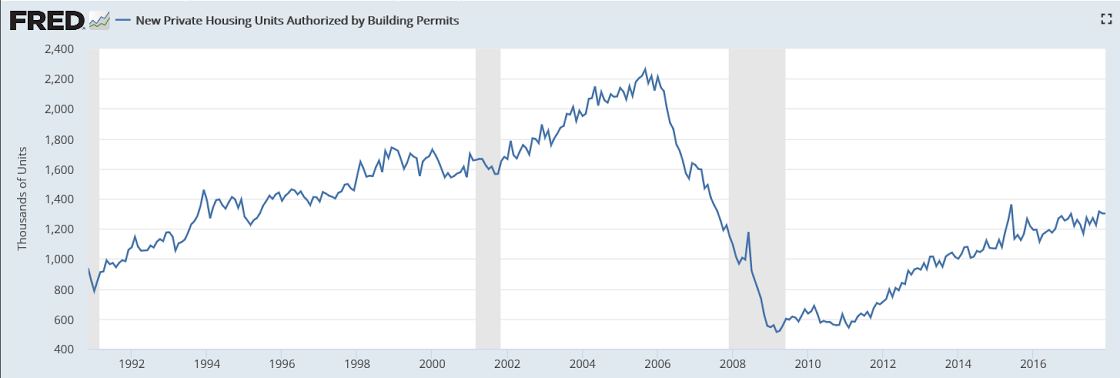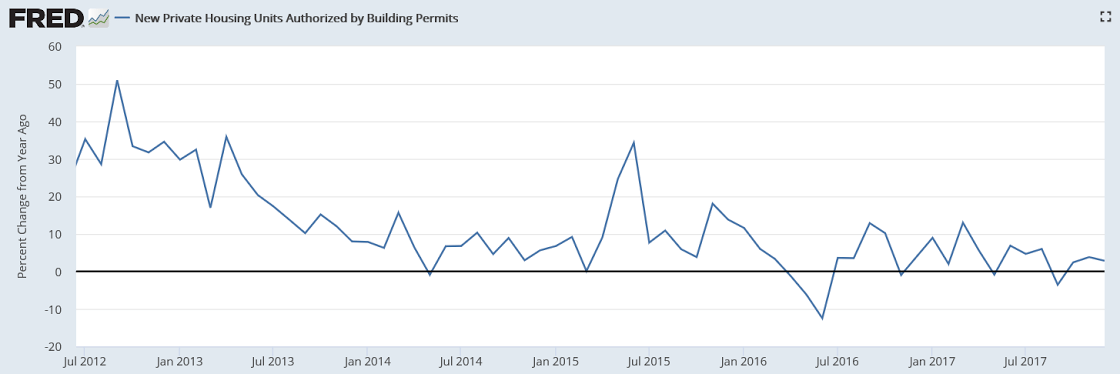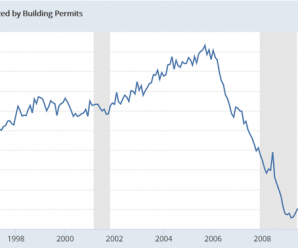Starts were quite a bit lower than expected while permits held steady:

From the Census Bureau: Permits, Starts and Completions
Housing Starts:
Privately-owned housing starts in December were at a seasonally adjusted annual rate of 1,192,000. This is 8.2 percent below the revised November estimate of 1,299,000 and is 6.0 percent below the December 2016 rate of 1,268,000. Single-family housing starts in December were at a rate of 836,000; this is 11.8 percent below the revised November figure of 948,000. The December rate for units in buildings with five units or more was 352,000.An estimated 1,202,100 housing units were started in 2017. This is 2.4 percent above the 2016 figure of 1,173,800.
Building Permits:
Privately-owned housing units authorized by building permits in December were at a seasonally adjusted annual rate of 1,302,000. This is 0.1 percent below the revised November rate of 1,303,000, but is 2.8 percent above the December 2016 rate of 1,266,000. Single-family authorizations in December were at a rate of 881,000; this is 1.8 percent above the revised November figure of 865,000. Authorizations of units in buildings with five units or more were at a rate of 382,000 in December.
emphasis addedRead more at http://www.calculatedriskblog.com/#k7tq4Il3CRYpwRsC.99
Looks to me like starts have been hovering around the 1.2 million level for almost 3 years, which is still well below peak starts of the last cycle, and even well below 2001 recession levels as well. And permits looking pretty much the same, for all practical purposes:



It’s a purely political move, of course, as they could have just as easily done all they wanted to do in any case and not get hit with a $38 billion tax bill:
Apple to pay $38B in repatriation tax, pledges to open new campus
That’s less than the 21% tax rate on corporate profits from the new law, itself a drop from the 35% prior rate. In a news release, Apple didn’t mention moving production of iPhones to the U.S. They are currently designed at Apple’s headquarters in Cupertino, California, but built at the Foxconn plants in China.
